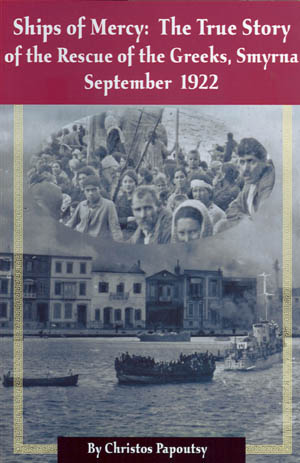 |
|||||
|
German Parliament Recognizes Armenian Genocide |
|||||
2 June 2016 (HCS)--A diplomatic firestorm has erupted in Europe over the recognition earlier today by Germany’s Parliament of the Armenian genocide in 1915 by Ottoman Turks. The resolution was slow in coming, likely held up over the sensitive timing of the measure while Germany and Turkey are cooperating as NATO allies to stem the flow of Syrian refugees into Europe. The position of Anakara and Turkish officials, as reported by the New York Times, is that “thousands of people” died, “many of them Turks” in the “civil war that destroyed the Ottoman Empire” and it has argued that the estimates of the deaths have been exaggerated. Some Turkish officials have persisted in taking a hard-line stance, refusing to acknowledge any Turkish responsibility whatsoever, as evidenced by the remarks of Foreign Minister Mevlut Cavusoglou on Twitter: “The way to close the dark pages of your own history is not by defaming the histories of other countries with irresponsible and baseless decisions.” Turkish Prime Minister Binali Yildirim added, “There is no shameful incident in our past that would make us bow our heads.” “Null and void” were the words used by President Recep Tayyip Erdogan as he recalled his ambassador from Germany. |
|||||
| Germany, however, moved forward with acknowledging its indirect involvement in the Armenian killings in an effort to begin to heal this past chapter of her history. The Christian Democratic Union and its coalition partners had hoped originally to mark the centennial last year of the start of the genocide, but the resolution was delayed over concerns about drawing Turkish ire both in Turkey and in Germany. Home to millions of Turkish citizens, a large demonstration of about 2,000 Turks took place last weekend in Berlin; protesters claimed, according to New York Times reporters, that the German “Parliament is not a court and therefore should not pass judgment.” |
|
||||
President of the German Bundestag, Norbert Lammert, opened debate over the resolution with several statements qualifying the resolution, designed to mitigate Turkish anger. He indicated that the Parliament wasn’t a court of law and that the present government of Turkey wasn’t responsible for what happened a century ago, but that it did “have responsibility for what . . . [became] of this” today. Lammert last year labelled the killings as genocide and commented that it was necessary for Germany to recognize its involvement so that it could work through past events to “achieve reconciliation and cooperation.” |
|||||
Germany follows eleven other European Union countries in recognizing the Armenian genocide. France approved legislation in 2011 recognizing the genocide, and The U.S. Congress, however, has yet to vote on a similar resolution even though it has been proposed a number of times before being tabled through pressure from Turkish lobbyists. Austria, Bulgaria, Cyprus, Czech Republic, Poland, Lithuania, Luxembourg, Slovakia, Sweden, Switzerland, Vatican City, Italy, Russia, Greece, and the Netherlands have all taken up resolutions in favor of recognition. The European Parliament recognized the genocide in 1987 and has called upon Turkey several times to acknowledge this dark chapter of the Turkish people. According to Wikipedia, “the overwhelming majority of historians as well as academic institutions on Holocaust and Genocide Studies recognize the Armenian Genocide.” The United Nations Sub-Commission on Prevention of Discrimination and Protection of Minorities received a report from its Special Rapporteur and Sub-Commission member Benjamin Whitaker (U.K.) indicating that the Ottoman systematic massacre of Armenians during World War I . . . . [met] the criteria for the UN definition of genocide. . . .” The 38th session of the Sub-Commission in 1985 received and accepted the report. In 1997 the International Association of Genocide Scholars (IAGS) passed a unanimous resolution recognizing the Ottoman massacres of Armenians as genocide [https://en.wikipedia.org/wiki/Armenian_Genocide_recognition ]. |
|
||||
Despite firm support throughout Europe for the resolution, some Turkish-Germans voiced concern over the outcome of the resolution. Aydan Ozoguz, the German Commissioner for Integration, in an interview with The New York Times, felt that the resolution would backfire, lending support to Turkish ultranationalists and neutralizing moderate voices within the Turkish political scene. |
|||||
|
(Posting date 02 June 2016) HCS encourages readers to view other articles and releases in our permanent, extensive archives at the URL http://www.helleniccomserve.com/contents.html. |
|||||
|
|||||
|
2000 © Hellenic Communication Service, L.L.C. All Rights Reserved.
http://www.HellenicComServe.com |
|||||


